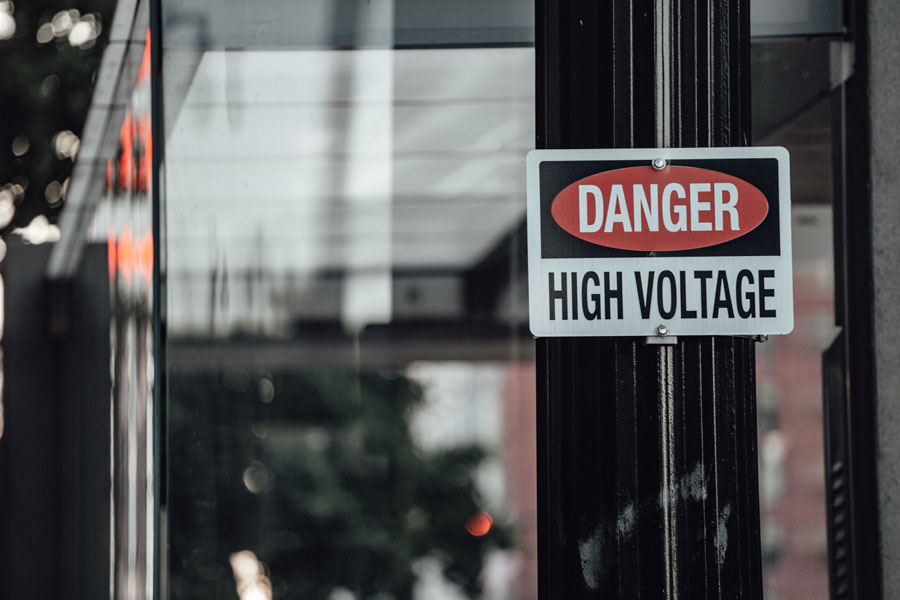High voltage electrical work: why it's so dangerous

Because the human body is an excellent electricity conductor, coming into contact with high voltage electricity, particularly above around 50 volts, can result in serious injury. When contact with high voltage electricity occurs, the electricity goes through the body, being destructive to tissues and potentially causing heart failure. Even voltages under 40 volts can kill if a person with wet skin comes into contact with it.
Which injuries can high voltage cause?
Coming into contact with high voltage electricity above 50 volts could cause a range of injuries, including:
- Burns: These happen when tissue heats up as the electrical current passes through, potentially resulting in deep burns that could be disabling or require surgery
- Heart function disorders: Painful muscle spasms which can be intense enough to dislocate joints or break bones
- Muscle damage: This can cause proteins capable of damaging the kidneys to be released into the blood
- Breathing problems: These are the direct result of electric shocks
- Falls and other injuries: These are an indirect result of electric shock
What precautions should be taken with high voltage electricity?
So considering the risks outlined above, which precautions should you and your team be taking when carrying out work near high voltage lines?
Keep your distance
Keeping a safe distance from high voltage lines can be seen as the first rule of thumb. But what does a 'safe distance' constitute? That will depend on the strength of the high voltage lines, but in general, people should aim to stay between five to 20 feet away. Equipment, such as cranes, also needs to be kept at a safe distance. This distance in this case will depend on the electrical source's strength, and is generally over ten feet, but could mean as much as 40 feet away.
Electromagnetic fields
High voltage electricity can produce electromagnetic fields which necessitate some precautions of their own. If you or a member of your team wears a medical device such as a pacemaker, you should consult your doctor before working near high voltage electricity.
De-energise high voltage lines
It is absolutely vital that high voltage lines are turned off and de-energised before work in an area commences. For cases in which an electrical supply cannot be switched off, a component person (an individual who has completed a training course for safety and duties on high voltage electrical installations) should be consulted before proceeding. It is important not to assume a circuit is safe because it is switched off. You should always check that a de-energised state has been reached because even with low voltage equipment, an arc can occur.
Don't work over or above high voltage lines
This should always be avoided as it can increase your chances of coming into contact with the line. Also, equipment or tools could fall and hit the line, resulting in arcing or causing damage to it.
Wear appropriate PPE
Wearing the right personal protective equipment (PPE) is essential. This can include rubber-soled footwear and eye protection, as well as removing jewellery that can increase your chances of being electrocuted.
Trained personnel only
Team members who are allowed to work near a site with any kind of electricity - including high voltage electricity - must have completed a recognised training course operated by an accredited organisation in your state. Even if basic electrical safety training has been completed, additional courses can be needed in order to work with or near high voltage electricity.
Don't work alone
Finally, neither you nor your team should ever work alone near high voltage electricity. You should have at least one partner who is fully trained and shares knowledge of the risks associated with high voltage electricity. This gives you at least one other set of eyes to promote safety, and assistance in a situation such as an injury.
We hope you find this article on the dangers of high voltage useful; this is one area in which you never want to 'roll the dice'!
 Sign In
Sign In 

